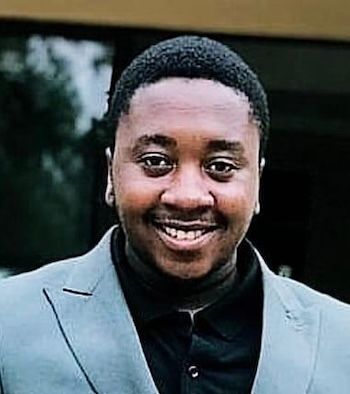Benon Ncube

Thumbnail: In a country where dissent is dangerous, Benon Ncube has emerged as a fearless youth leader and human rights advocate. From leading national student protests to confronting historical injustices, Ncube’s journey is marked by courage, sacrifice, and resilience.
Benon Babongile Ncube: Defiant Voice in Zimbabwe’s Student Struggle In a country where speaking out can cost you your freedom — or worse — Benon Babongile Ncube (26) has become a symbol of defiance. From leading nationwide student protests to confronting the ghosts of Zimbabwe’s violent past, Ncube has risked arrest, assault, and academic sabotage to demand justice.
Born and raised in Zimbabwe's second-largest city of Bulawayo, Ncube’s activism was shaped by personal experiences of economic hardship and institutional injustice. As a student at Midlands State University, he rose through the ranks of the Zimbabwe National Students Union (ZINASU), serving as Chairperson of the MSU chapter, Midlands Provincial Chairperson, and ultimately National President in 2021.
“I didn’t choose activism,” Ncube says. “It chose me the moment I realized silence was complicity in the face of injustice.”
His tenure was marked by high-profile mobilization efforts, including the May 2022 National Shutdown of colleges and universities, which rallied students nationwide against soaring tuition fees, corruption, and authoritarian governance. “We were tired of being told to endure,” he recalls. “We wanted to be heard.”
The protest remains one of the most visible acts of student resistance in recent history.
Ncube’s activism came at a personal cost. He deferred his studies twice due to unaffordable fees and was later denied access to his academic records over disputed charges, stalling his post-graduate progress. “I had paid everything. They just didn’t want me to move forward,” he says. The university later admitted fault, but only after derailing his post-graduate plans.
He has also faced physical violence and arbitrary detention, including assault by riot police during student elections and confinement in Gweru’s Senga police cells.
Internally, Ncube resisted attempts to politicize ZINASU, defending student autonomy amid factional pressures. His leadership style, rooted in principle and emotional intelligence, was forged through episodes of betrayal and institutional pushback. “I was called stubborn, difficult. But I knew what we stood for,” he says. “Student autonomy isn’t negotiable.”
In recognition of his courage and unwavering commitment to justice, Ncube was named a Giraffe Hero by the Giraffe Heroes International—an international honour awarded to individuals who “stick their necks out” for the common good. In Zimbabwe’s fraught political climate, where dissent is often met with intimidation, the award underscores the personal risks Ncube has taken to confront injustices.
Beyond student politics, Ncube transitioned into formal political organizing, serving as campaign manager for a successful local council opposition candidate in 2023. His academic grounding in local governance informs his approach to activism, blending protest with policy analysis and systems thinking.
He has also focused on Zimbabwe’s unresolved post-independence injustices, notably enforced disappearances and the Gukurahundi genocide. Gukurahundi refers to a series of brutal military-led massacres that occurred in Zimbabwe between 1983 and 1987, primarily targeting the Ndebele population in the Matabeleland and Midlands provinces. Carried out by the North Korean-trained Fifth Brigade under the direction of the Zimbabwean government, the campaign was officially aimed at rooting out dissidents but resulted in widespread atrocities, including mass killings, torture, and disappearances of civilians.
Estimates suggest that over 20,000 people were killed. The term "Gukurahundi" is derived from a Shona phrase meaning "the early rain that washes away the chaff before the spring rains," symbolizing the regime’s intent to eliminate perceived opposition. To this day, the events remain a deeply painful and unresolved chapter in Zimbabwe’s history, with survivors and activists continuing to call for truth, justice, and national healing. Ncube's advocacy for truth and accountability has drawn scrutiny from state agents, but he remains committed to national healing and historical reckoning.
Living under constant surveillance and scrutiny, Ncube remains undeterred. “They want us afraid. But fear is a luxury we can’t afford,” he says. “This is about building a Zimbabwe where truth matters, and justice isn’t a privilege.”
In a country where silence is often enforced through fear, Ncube’s work reflects a rare resolve to confront uncomfortable truths and build a future anchored in human rights and inclusive governance.
